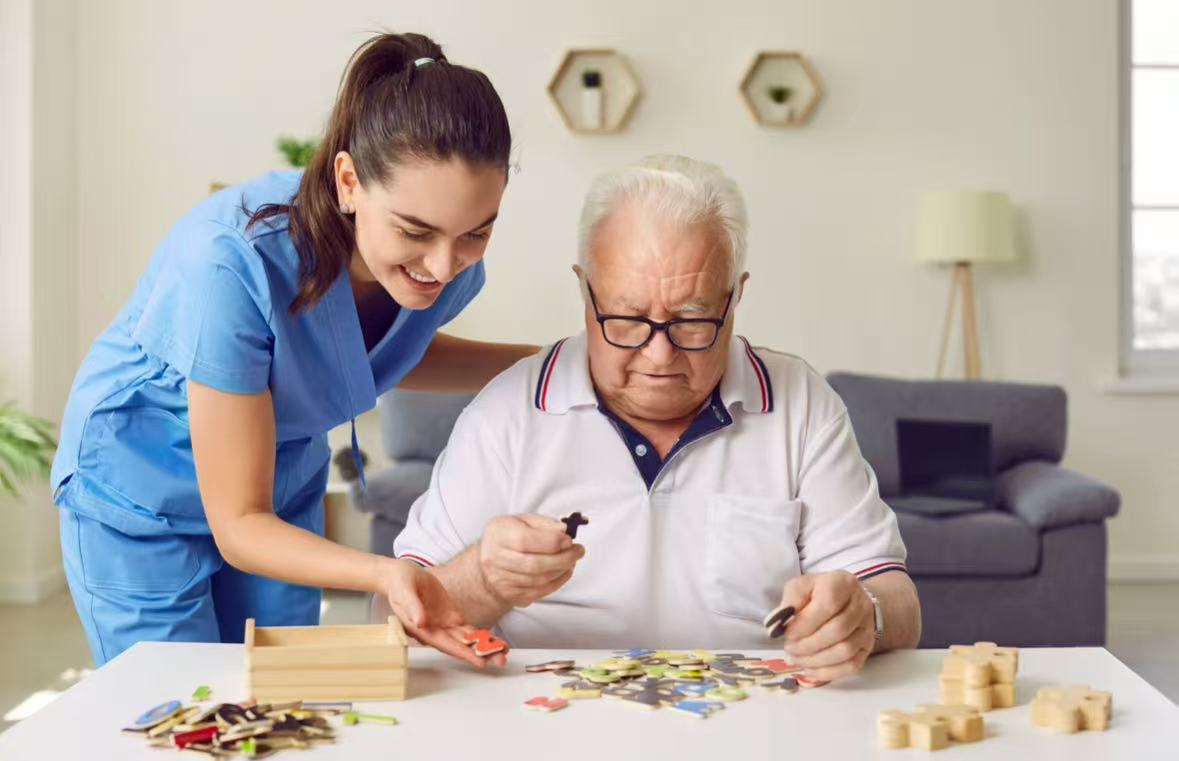
Alzheimer's disease is most common in people over the age of 65. The risk of Alzheimer's disease and other types of dementia increases with age, affecting an estimated 1 in 14 people over the age of 65 and 1 in every 6 people over the age of 80. (Credit: Studio Romantic)
Alzheimer's disease (AD) is becoming an increasingly critical challenge in global public health. According to estimates from the Alzheimer's Association, the number of Americans aged 65 and older living with Alzheimer's is projected to reach 7.2 million in 2025. Globally, data from the World Health Organization (WHO) indicates that 57 million people worldwide were living with dementia in 2021, with projections estimating an increase to 83 million by 2030 and potentially 152 million by 2050.
In the race against AD, time is of the essence. On World Alzheimer's Day, BGI Group reaffirms its commitment as a leading global life sciences organization to advancing research and prevention efforts for AD and to help shift the paradigm of AD management towards proactive prevention worldwide.
Multi-Omics Research Breakthroughs: Driving Clinical Translation
BGI Group has a long track record in disease research, including Alzheimer’s. In collaboration with various research institutions, BGI scientists have published a series of impactful studies in leading international journals.
Published as a cover story on the journal Neuron, BGI and partners have made significant progress in AD research by leveraging BGI's proprietary spatial transcriptomics technology. This has enabled the team to construct the world's first single-cell spatial atlas of the human hippocampus with AD, identifying CCK and PMP2 as promising plasma biomarkers with high diagnostic value.
BGI and partners also published groundbreaking findings in Protein & Cell. The study identified novel early neuropathological changes and biomarkers associated with AD, providing new insights into the spatiotemporal dynamics of neuronal degeneration. These findings highlight the full-cycle cellular changes and molecular mechanisms in the entorhinal cortex-hippocampus (EC-HPC) circuit, which is critical for memory and is affected early in AD. This research could guide future strategies for early intervention, prevention, and drug discovery targeting AD.
In addition, BGI and partners published findings in Alzheimer’s & Dementia that explored the connection between gut microbiota and brain health. For the first time, researchers identified key gut microbial metabolites that influence the brain’s anti-inflammatory mechanisms, which are critical for slowing AD progression. The study also validated the effectiveness of a “probiotics + prebiotics” combination therapy as a targeted intervention strategy, offering a new approach to early screening, precise diagnosis, and daily prevention of AD.
Innovative Testing: Unlocking New Avenues for Early Screening
Conventional diagnostic approaches for AD, such as cognitive assessments, cerebrospinal fluid (CSF) analysis via lumbar puncture, and PET-CT imaging, are often limited by subjectivity, invasiveness, or high costs, making them unsuitable for widespread early screening.
A paper published in the International Journal of Geriatric Psychiatry in July of this year, noted that the mean time to diagnosis (TTD) for all types of dementia is as long as 3.5 years, meaning that patients often wait an extended period for a definitive diagnosis and access to appropriate care.
To overcome these diagnostic hurdles, BGI has developed a novel blood-based test for AD and other cognitive disorders built upon its decades of research. This test looks for five key signs in the blood, including specific forms of tau and amyloid proteins, along with other nerve-related indicators, that together give doctors a clearer picture of what’s happening in the brain.
The test uses MALDI-TOF MS technology to analyze two APOE gene loci, rs429358 and rs7412, aiding clinicians in evaluating the likelihood and progression of AD. The test can provide results that guide doctors and patients in making appropriate lifestyle changes.
Characterized by excellent testing quality, this test offering an efficient, non-invasive, and cost-effective option for early screening, adjunctive diagnosis, and disease management – ultimately reducing time to diagnosis and expanding opportunities for early intervention.
On World Alzheimer’s Day, BGI Group reaffirms its commitment to addressing the challenges of aging societies. By advancing research, expanding early screening solutions, and leveraging scalable technology platforms, BGI aims to improve healthcare management for Alzheimer’s and other neurodegenerative diseases. The organization is dedicated to slowing disease progression, protecting cognitive health, and raising global awareness of Alzheimer’s impact.
Source:
2025 Alzheimer’s Disease Facts and Figures Report: Executive Summary,Alzheimer Association.
WHO Official Website.
https://www.who.int/health-topics/dementia#tab=tab_2
Risk Reduction of Cognitive Decline and Dementia, WHO Guideline.
https://iris.who.int/bitstream/handle/10665/312180/9789241550543-eng.pdf?sequence=17
Molecular pathways and diagnosis in spatially resolved Alzheimer’s hippocampal atlas.
https://www.cell.com/neuron/abstract/S0896-6273(25)00174-6
Spatiotemporal characterization of disease-associated neurons in the entorhinal cortex-hippocampal circuit during Alzheimer’s disease progression.
https://academic.oup.com/proteincell/article/16/9/799/8159643?searchresult=1&login=false
Synbiotics of Lactobacillus suilingensis and inulin alleviates cognitive impairment via regulating gut microbiota indole-3-lactic acid metabolism in female AD mice.
https://alz-journals.onlinelibrary.wiley.com/doi/full/10.1002/alz.70406
Time to Diagnosis in Dementia: A Systematic Review With Meta-Analysis.
https://pubmed.ncbi.nlm.nih.gov/40716451/



